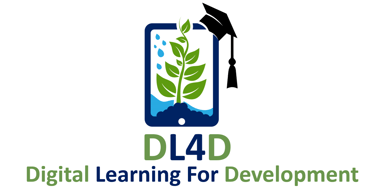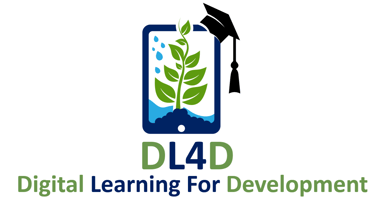Elevating Education: Dgmentor’s Approach to Instructional Design
Instructional design involves analyzing learning needs, defining learning objectives, and developing content and activities that support those objectives, often using a systematic approach like the ADDIE model (Analysis, Design, Development, Implementation, Evaluation). The importance of instructional design lies in its ability to optimize learning outcomes by ensuring that the right content is delivered in the most effective way. By aligning instructional strategies with learner needs and goals, it helps increase retention, engagement, and application of knowledge, making it an essential component in both traditional and digital education settings.
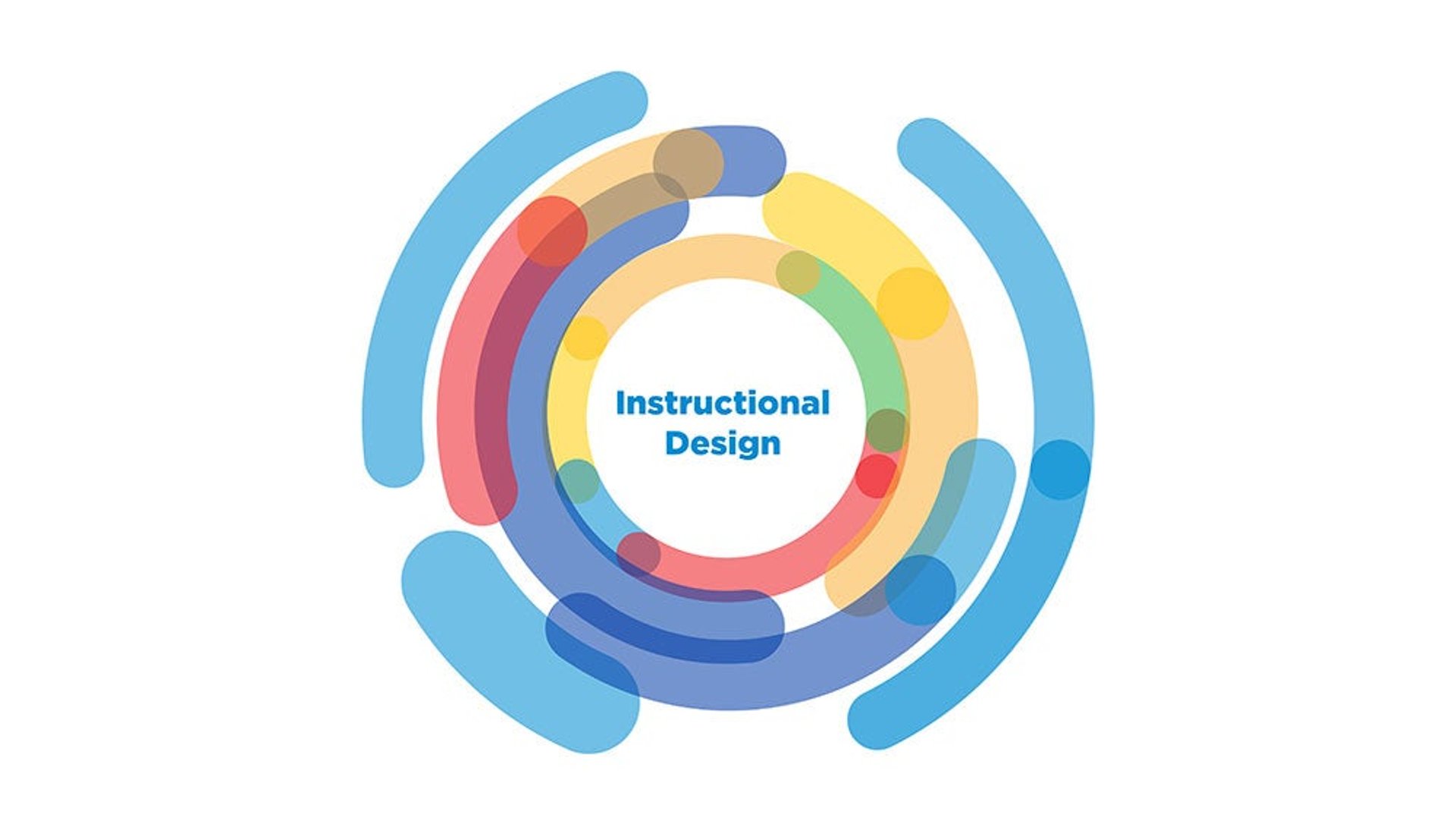
What is Instructional Design?
Instructional design, also known as instructional systems design, is the process of generating learning experiences that promote long-term learning. It uses a systems approach to analyze, create, develop, implement, and evaluate any instructional experience. Instructional design is founded on the premise that training will be most productive when it explicitly states what information learners will obtain as well as how their performance will be evaluated.
As per the instructional design, when building a learning experience, designers of instruction must consider three major components: learning objectives, learning activities, and assessments. This is called the "Magic Triangle" of learning.
For instance, there must be a learning objective that clearly indicates what a learner should be able to achieve once the course/lesson is completed. This learning aim will then guide the activities chosen for the course. The learning objective and learning activities will also influence the sorts of assessments used and their difficulty levels. When these three aspects are linked, effective learning can occur.
Learning objectives
A learning goal defines and limits what students ought to understand and be able to do by the conclusion of the course that they've been unable to do previously. They are a method of explicitly defining the intended outcome of a course in terms of demonstrable skills or information that the learner will gain as a result of the instruction offered.
The most significant aspect of a learning aim is that its achievement is measurable. Many instructional design frameworks and theories include explicit verbs and recommended practices for creating and using learning objectives appropriately.
They are viewed as crucial to the learning process because they influence all subsequent instructional design decisions.
Learning Activities
Learning Activities are all of the course assets needed to deliver the educational experience. These are activities that instructional designers organize and execute during course design and that the learner performs or uses during the learning process. Learning activities can include audio, video, animation, gamification, and simulation, as well as classic activities like reading and lecturing.
Learning Assessments
Assessments are the last phase in the learning process. Quizzes, exams, and scored simulators of real-world scenarios are common components of learning assessments. They constitute the final point in the "Magic Triangle" of instructional design since they are used to ensure that the learning aim has been reached. Furthermore, they play a key role in the cognitive "action and reflection" processes required for effective learning.
How DgMentor leverages instructional design to deliver training on its platform
DgMentor is a Cloud based SaaS technology platform, which can deliver trainings 100% digitally. Using DgMentor, Corporates can train their staff, distribution network, existing and prospect customers.
Our platform, DgMentor addresses most of the existing pain points in the learning and development industry such as field training difficulties, continues engagement difficulties and covid pandemic related difficulties. We specialize in facilitating all kinds of skill training and capacity building for the needed including corporate trainings, educational programs, various compliances and certifications.
DgMentor, as a training and learning platform, is being designed by taking core elements and magic triangle of learning of Instructional design into consideration.
The training contents in the DgMentor app is organized in the most-easiest way enabling the learner making it possible to be used as a trainer led training session or even to self-learn the content easily. The app has the capability to display many courses related to any topic or area. Each course is divided into modules while modules are divided into several chapters with different content. Each module consists of different chapters related to the course. Under each chapter, we have included four types of content such as a Text explanation, pdf, power point presentations, audio, video and a quiz ensuring a greater educational experience with learning activities.
DgMentor offers a pre-training assessment option for the participant before learning the course content to check the current level of knowledge they have on the subject matter. After doing the Assessment, learners are given the chance to view their results at the same time giving them the chance to improve next time. DgMentor also consists of a Post training examination where learners can attempt the examination after learning the training contents. The application has the facility of generating a certificate for the examination scores which can be customized according to any requirement of an organization and can be readily shared anywhere.
DgMentor has provided two options to collect feedback from participants after the training where feedback can be received though a detailed survey and short general feedback to give a rating.
We have also embedded attractive gamifications such as a Course Progress Bar to indicate how much the participant has completed in each module. Further, a leader board and score card to identify top learners with high grades.
Our platform enables us to check whether the intended outcome or the learning objective has been achieved. The learner can review the effectiveness of training based on categories and readily compare on the application itself the performance of one group to another. Individual performance of participants as well as group wise can be analyzed very well, through the quiz, assessment and exam results scored for each course to understand how much the learner grasped from the learning content. DgMentor also provides the functionality to assess participants before the training and it evaluates the impact after the training completion.
Instructional designers' primary role is to build and deliver training and educational resources to learners from various backgrounds using a variety of approaches. In order to fullfill this, DgMentor supports multiple methods of delivering training contents as per the requirement and effectiveness of each method. The platform consists of several training methods such as List View, Page View, Playbook and Short Training Capsules. The platform supports numerous languages, customizable user interfaces, and is compatible with all current devices and platforms. Training can be stored to devices, allowing students to complete them offline at their own leisure, even in places with limited internet access.
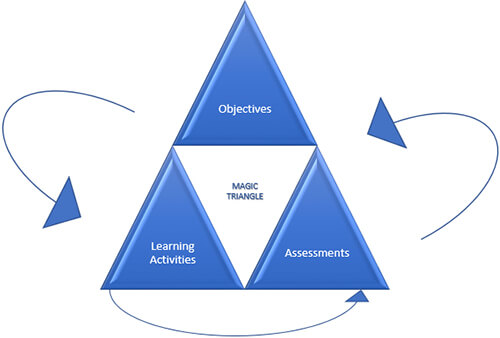

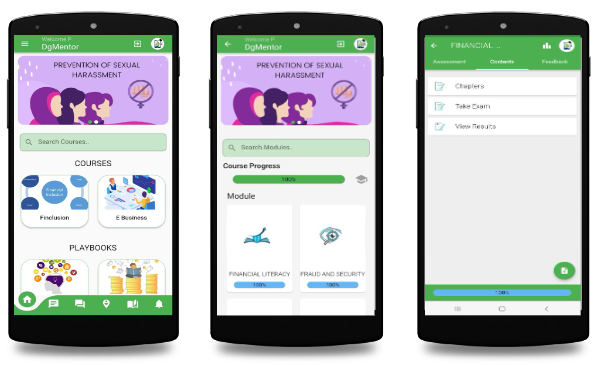

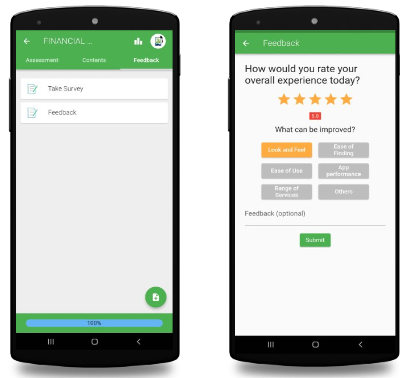

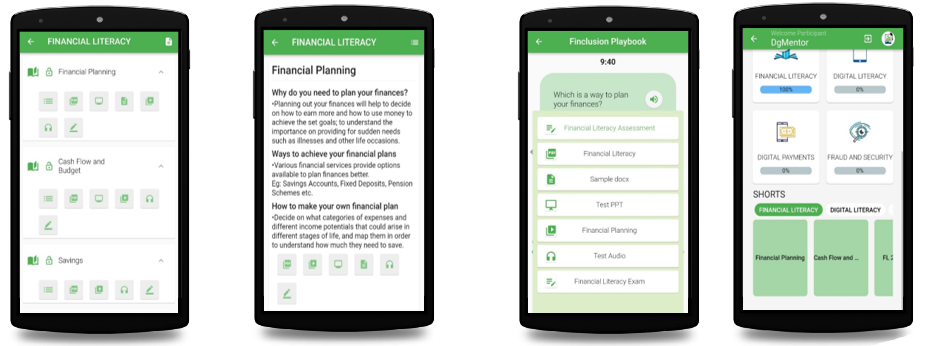

Contact us
Whether you have a request, a query, or want to work with us, use the form below to get in touch with our team.


